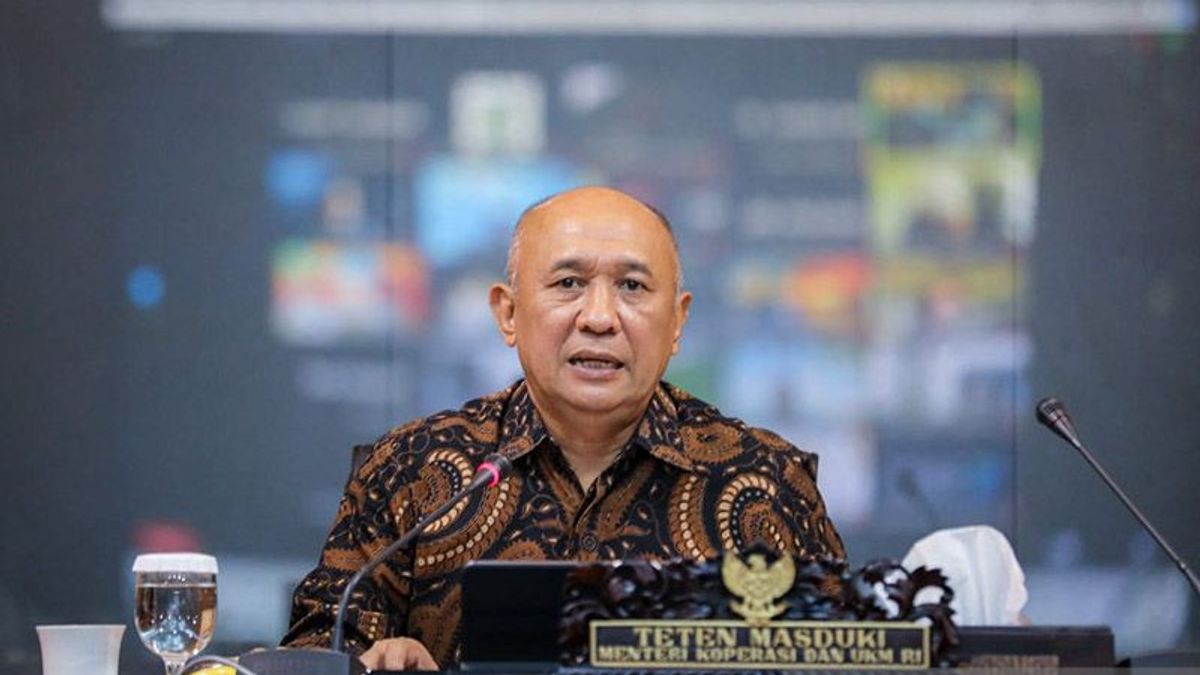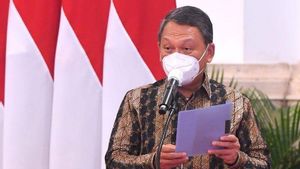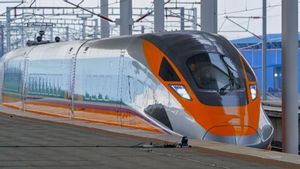JAKARTA - Minister of Cooperatives and SMEs Teten Masduki said that micro, small and medium enterprises (MSMEs) must be willing to evolve from low-tech to high-tech MSMEs if they want to enter a wider export market.
Teten asked regional heads to encourage MSMEs, especially micro-scales, to evolve from low-tech MSMEs to high-tech MSMEs.
Teten also gave an example of MSMEs in South Korea that have carried the smart factory concept.
Small, but MSMEs have used modern technology and industrial management to produce their products and connect to supply chains.
"If we are still produced concurrently with the family kitchen. There have been from Japan who like tempe chips and want to bring imports, but as soon as the production is aimed at concurrently with family kitchens that they don't import. Some want to import crackers from Indramayu when visited by the factory in front of them there is a sewer that smells, disbands," said Coordination Minister Teten at the Coordination Meeting in Medan which was watched online in Jakarta, Monday.
MSMEs in South Korea, for example, do not produce final products but semi-finished products or only produce components for industry.
So that although the business scale is still small, it does not require experts and machinery that are not too much.
Not to forget, he reminded regional heads to select MSMEs that have the potential to be called up and developed through technology assistance so that their production is more efficient and modern.
"We want in the future so that our MSMEs are not separated from the national industrialization policy, this is important for us to understand everything. So that later when I meet again, I will not be arrogant by all of you, including the regional head, that the micro one is increasing. Actually this is not a success but a failure, "said Teten.
Quoting data from the Ministry of Education, Culture, Research and Technology, Minister Teten said, each year there are 3.5 million school graduates to universities that require job opportunities.
However, with Indonesia's economic growth of around 5 percent, it is only able to absorb 2 million people.
As a result, the number of unemployed and informal sector workers increases every year.
"So we will continue to save every year there are about one and a half million unemployed and that is the burden on our families. There must be some of us who are unemployed that we have to take care of, fortunately our social system is still able to manage our families, help our families who are still unemployed. This is what we have to build, "he said.
SEE ALSO:
The World Bank, continued Teten, has reminded the Indonesian government to immediately provide quality job opportunities because the jobs provided by micro-enterprises are only limited to fulfilling their daily needs and not being connected to supply chains.
"If this micro is a subsistent economy, they don't really want to become business people, but because there is no job, they end up creating their own business and when they make their own business they don't have a consultation place, there is no guidance from the government, finally it's niru, neighbors selling meatballs, this makes meatballs tofu and fried," he said.
The English, Chinese, Japanese, Arabic, and French versions are automatically generated by the AI. So there may still be inaccuracies in translating, please always see Indonesian as our main language. (system supported by DigitalSiber.id)
















